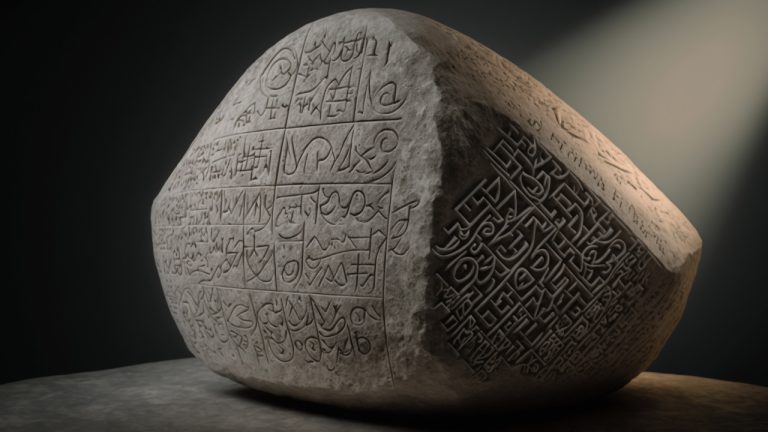 According to statistics, there are now more than 500,000 Ordinal inscriptions on the Bitcoin blockchain as the trend continues to gain significant traction. Onchain data also shows that since inscriptions started gaining popularity last month, Bitcoin miners have obtained 98 bitcoins worth $2.66 million in added fees. The Rise of Ordinal Inscriptions on Bitcoin Blockchain […]
According to statistics, there are now more than 500,000 Ordinal inscriptions on the Bitcoin blockchain as the trend continues to gain significant traction. Onchain data also shows that since inscriptions started gaining popularity last month, Bitcoin miners have obtained 98 bitcoins worth $2.66 million in added fees. The Rise of Ordinal Inscriptions on Bitcoin Blockchain […]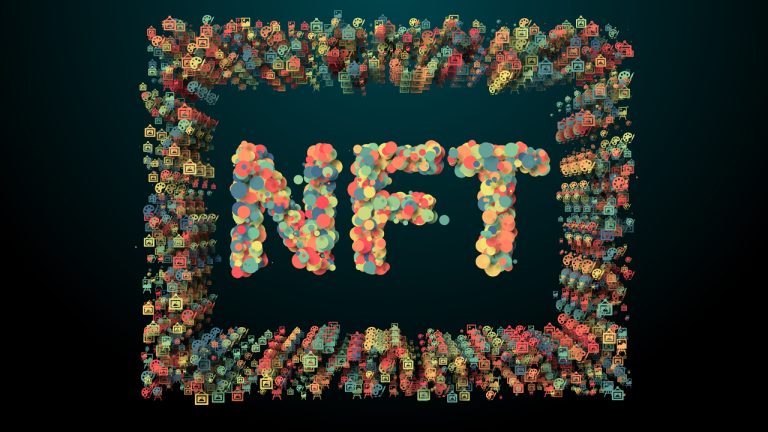 Non-fungible token (NFT) sales rose slightly last week, increasing 1.23% to $232.49 million in recorded sales. The top two NFT collections, Otherdeed and Doodles, saw growth of 44% to 58% compared to the previous week. Ethereum continues to dominate the NFT industry, accounting for more than 81% of total sales last week with $188.51 million […]
Non-fungible token (NFT) sales rose slightly last week, increasing 1.23% to $232.49 million in recorded sales. The top two NFT collections, Otherdeed and Doodles, saw growth of 44% to 58% compared to the previous week. Ethereum continues to dominate the NFT industry, accounting for more than 81% of total sales last week with $188.51 million […]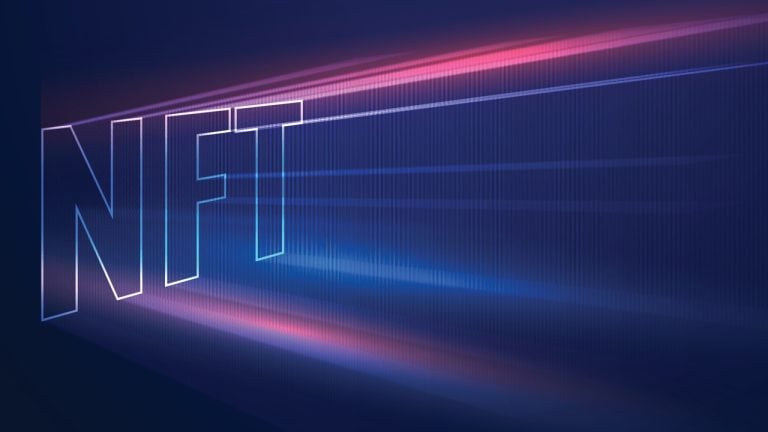 Non-fungible token (NFT) sales have dropped significantly in contrast to the seven days prior, as NFT sales are down 59.35% this week. During the past seven days, $208.68 million in NFT sales were recorded, with $157.20 stemming from the Ethereum blockchain. The top-selling NFT collection this past week was the Bored Ape Yacht Club (BAYC), […]
Non-fungible token (NFT) sales have dropped significantly in contrast to the seven days prior, as NFT sales are down 59.35% this week. During the past seven days, $208.68 million in NFT sales were recorded, with $157.20 stemming from the Ethereum blockchain. The top-selling NFT collection this past week was the Bored Ape Yacht Club (BAYC), […]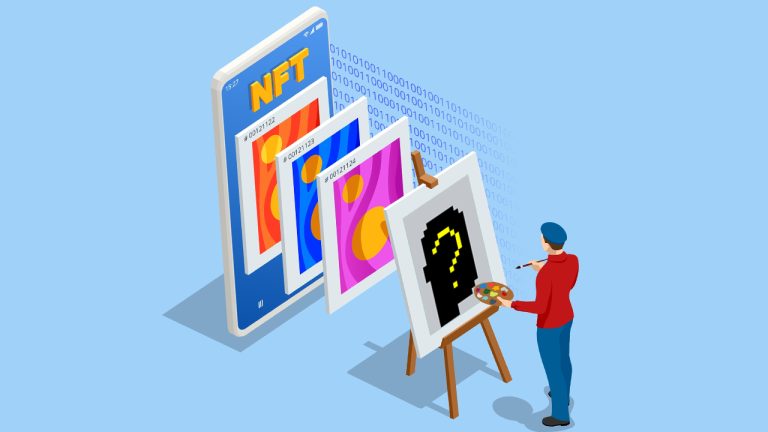 The first week of 2023 saw an upswing in non-fungible token (NFT) sales as seven-day volume increased 26.01% compared to the previous week, totaling approximately $208.99 million in NFT sales. Additionally, the top five NFT-issuing blockchains saw increases over the last week. Bored Ape NFT Collection Leads the Way with $19 Million in Sales, 52.82% […]
The first week of 2023 saw an upswing in non-fungible token (NFT) sales as seven-day volume increased 26.01% compared to the previous week, totaling approximately $208.99 million in NFT sales. Additionally, the top five NFT-issuing blockchains saw increases over the last week. Bored Ape NFT Collection Leads the Way with $19 Million in Sales, 52.82% […]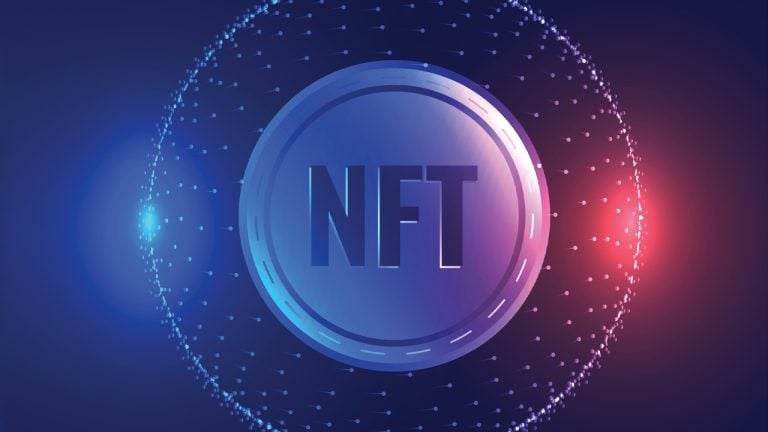 Non-fungible token (NFT) sales over the last seven days are ending the year 13.97% lower than the week prior. During the last week, statistics show that $147,054,554 in NFT sales were recorded across 334,668 NFT buyers. NFT Sales Continue to Slip: 13.97% Decrease in Last Seven Days NFT sales are down this week, 13.97% lower […]
Non-fungible token (NFT) sales over the last seven days are ending the year 13.97% lower than the week prior. During the last week, statistics show that $147,054,554 in NFT sales were recorded across 334,668 NFT buyers. NFT Sales Continue to Slip: 13.97% Decrease in Last Seven Days NFT sales are down this week, 13.97% lower […]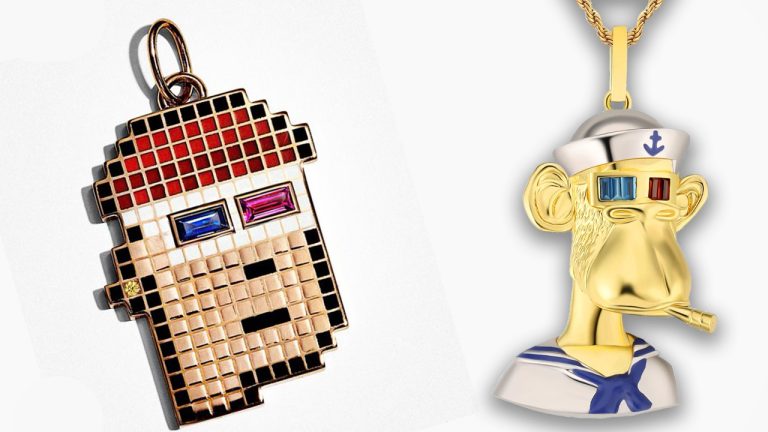 Like most crypto projects this year, non-fungible tokens (NFTs) felt the pain of 2022’s crypto winter as sales are down a great deal and blue-chip NFTs have been slashed in value. For instance, last month, there was roughly $534 million in NFT sales compared to the $2.77 billion in NFT sales sold in Dec. 2021. […]
Like most crypto projects this year, non-fungible tokens (NFTs) felt the pain of 2022’s crypto winter as sales are down a great deal and blue-chip NFTs have been slashed in value. For instance, last month, there was roughly $534 million in NFT sales compared to the $2.77 billion in NFT sales sold in Dec. 2021. […] During the week of Jan. 30 to Feb. 5, 2022, the search term “NFT” had a Google Trends (GT) score of 90 and today the GT score has dropped a great deal down to a score of 12. Not only has interest declined, but blue chip non-fungible tokens (NFTs) don’t hold the value they once […]
During the week of Jan. 30 to Feb. 5, 2022, the search term “NFT” had a Google Trends (GT) score of 90 and today the GT score has dropped a great deal down to a score of 12. Not only has interest declined, but blue chip non-fungible tokens (NFTs) don’t hold the value they once […]
A one-of-a-kind NFT of the Birkenstocks sandals worn by Apple co-founder Steve Jobs at various times during his life has sold for over $200,000.
Footwear and apparel giant Nike has unveiled its latest foray into the nonfungible token (NFT) and metaverse space with the launch of an NFT marketplace named .Swoosh.
While .Swoosh is still in the beta phase, Nike announced that its “first digital collection” is set to launch on the Web3 platform in 2023, with the rest of 2022 devoted to growing the platform and user base.
✅ About .SWOOSH ♂️
— ycxc RTFKT (@ycxcRTFKT) November 14, 2022
.SWOOSH is a platform for @Nike's virtual creations, for them to be more accessible and to onboard the next millions into the wonderful world of web3 and digital assets.
pic.twitter.com/F0M7Q8Ddwk
Among the “virtual creations” to become available next year are digital sneakers, apparel, accessories and other collectibles. In addition, some will unlock benefits such as access to real-life products and events.
Following the first collection drop, members can enter a community challenge to win the opportunity to co-create a virtual product with Nike.
According to Nike, the winners of the challenge can earn an undisclosed amount of royalties on the virtual product they help co-create.
Ron Faris, general manager of Nike Virtual Studios, said .Swoosh offers a “gateway into a new digital arena,” while the Twitter post from Nike said the platform would help “onboard the next millions” into the “wonderful world of web3 and digital assets.”
“We are shaping a marketplace of the future with an accessible platform for the web3-curious,” he added.
In 2021, Nike entered the metaverse game through the acquisition of virtual sneakers and collectibles brand RTFKT. It also launched the virtual world Nikeland.
.SWOOSH uses similar tools and technologies but all three are different projects for the company.
A one-of-a-kind NFT of the Birkenstocks sandals worn by Apple co-founder Steve Jobs at various times during his life has sold for $218,750 at an auction.

Julien’s Auctions ran the auction from Nov. 11 to Nov. 13, with 19 people overall trying to claim the footwear with offers ranging from $15,000 to $175,000.
Included in the deal was an NFT featuring a 360° digital representation of Steve Jobs sandals, which was minted on the Polygon blockchain.
The NFT is a 1-of-1 edition and included the physical sandals, with the “imprint of Steve Jobs’ feet.” It also came with a hard case for storage and transport and a Jean Pigozzi book titled The 213 Most Important Men in My Life.
Initially, the sandals and NFT were projected to fetch between $60,000 and $80,000, but after 19 bids, the sandals ended up going for $218,750. The new owner of the sandal NFT has not been publically disclosed.
Jobs and Steve Wozniak co-founded Apple in 1976. Jobs died of pancreatic cancer in 2011.
Bangalore International Airport has launched Metaport, a metaverse airport built on the Polygon blockchain.
Hello flyers ✈️ @BLRAirport launches #Metaport, the 's first airport metaverse exclusively #onPolygon to showcase the T2 Terminal.
— Polygon - MATIC (@0xPolygon) November 12, 2022
Experience the phygital world of
Socializing
️ Shopping
Entertainment
Welcome to the future powered by #Polygon, @AWS & @Intel pic.twitter.com/9ESUoIvplm
Inaugurated by Indian Prime Minister Narendra Modi on Nov. 11, the metaverse features a virtual reproduction of Terminal 2 at Bangalore International Airport and allows users to network with other travelers, access entertainment and go shopping in the digital space.
Arpit Sharma, vice president of enterprises at Polygon, posted a Nov. 12 video of Metaport in action.
BLR metaport powered by @0xPolygon, @awscloud, @intel, @BLRAirport goes live today! Super proud!
— Arpit (@Arp_it1) November 12, 2022
Bengaluru is leading the way - @Tejasvi_Surya
Kudos to the amazing leaders and team@HariMarar @sandeepnailwal @kamakshi_taneja @nikhilv @kanishkaagiwal https://t.co/5X9BBLOUIL pic.twitter.com/VgTomeNBxz
In the video, a user logs into the Metaverse airport, customizes their avatar’s appearance and clothing and then wanders around the virtual space.
The avatar interacts with several other users through a text-based chat, goes on an art tour and gets the chance to purchase digital items before a boarding call prompts the user to leave the metaverse.
The project is the result of a joint venture between Bangalore International Airport, Polygon, Intel and Amazon Web Services and is being called the first metaverse airport in the world by its creators.
The 2022 FIFA World Cup is rapidly approaching its Nov. 20 kickoff in Qatar and in the leadup, several companies have been releasing NFT collections and announcing Web3 games for the event.
Sportswear manufacturer Adidas posted a Nov. 14 promotional trailer for the World Cup featuring its Bored Ape Yacht Club (BAYC) character Indigo Herz alongside Lionel Messi and other players.
catch our family reunion all World Cup long #ImpossibleIsNothing pic.twitter.com/UCNG2WBnLg
— adidas (@adidas) November 14, 2022
Herz was on a cereal box of “Indigoooooals.”
The footwear giant purchased Indigo Herz, or BAYC #8774, on Sept. 17, 2021, for 46 Ether (ETH) — worth approximately $58,500 at the time.
Yuga Labs grants holders full intellectual property rights to use the characters for commercial endeavors.
Related: Wuhan omits NFTs from metaverse plan amid regulatory uncertainty in China
Earlier this month, major credit card company Visa released five soccer-themed NFTs for auction on Nov. 1 featuring World Cup goals of famous players. The auction lasted until Nov. 8, with all proceeds donated to a United Kingdom-based charity.
The payments company is also giving fans a chance to create their own NFTs on a digital pitch at the FIFA Fan Festival, which will launch during the World Cup.
On Oct. 14, Budweiser partnered with FIFA to release a live scoreboard NFT collection called Budverse X World Cup.
According to the OpenSea description, once users mint their world cup team, the NFT will follow and track the progress throughout the FIFA World Cup.
Meanwhile, FIFA announced on Nov. 9 they will have at least four Web3 games that fans can play while at the World Cup.
NFT marketplace OpenSea announced it will continue to enforce royalties across all collections going forward, following an outcry from creators for considering otherwise.
Web3 technology has opened a whole new frontier for musicians, but the head of IP at Animal Concerts metaverse platform says onboarding someone like Snoop who is active in the space is very different from “artists who don’t typically keep up with the Web3 ecosystem.”

Royalty enforcement tool only applies to new NFT collections at this stage, with a decision to be made on existing collections at a later date.
Nonfungible (NFT) marketplace OpenSea appears to have taken a position in the NFT royalties debate — launching a new "on-chain" tool helping creators enforce royalties.
The NFT marketplace, which according to CoinGecko commands 66% of the market share in NFT marketplaces been relatively silent on the issue of royalties and enforcement while others in the space have been implementing their own strategies over the last few months.
In a Nov. 6 blog post, OpenSea CEO Devin Finzer noted that in marketplaces where fees are optional, they’ve “watched the voluntary creator fee payment rate dwindle to less than 20%”, while in other marketplaces creator fees are “simply not paid at all.”
The OpenSea CEO announced the marketplace has launched a new tool that will allow creators to deliver “on-chain enforcement” of their royalties.
There’s been a lot of discussion over the past few months about business models for NFT creators & whether creator fees (“royalties”) are viable.
— OpenSea (@opensea) November 6, 2022
Given our role in the ecosystem, we want to take a thoughtful, principled approach to this topic & to lead w/ solutions.
Finzer described the tool as a "simple code snippet," which allows creators to enforce royalties on new and future NFT collection smart contracts, and existing upgradeable smart contracts. The code will also restrict NFT sales to only marketplaces that enforce creator fees.
"It's clear that many creators want the ability to enforce fees on-chain; and fundamentally, we believe that the choice should be theirs to make — it shouldn't be a decision made for them by marketplaces," Finzer said.
Finzer also said that OpenSea will enforce royalties for any new collections using an on-chain enforcement tool, but won't do so for new collections that don't opt-in.
Finzer explained in an accompanying Twitter Spaces that OpenSea is "not requiring folks to use our specific solution," creators can use "whatever solution you want and implement it anyway."
"We provide a template GitHub repo that helps you use a solution that basically blocks lists marketplace that doesn't support creator fees, you don't have to use that solution; the requirement is that if you want creator fees, you have to enforce them on chain."
The tool also won’t be rolled out for existing NFT collections for the moment due to implementation challenges.
"To the best of our knowledge, the only way to achieve on-chain creator fee enforcement for existing collections with non-upgradeable smart contracts is to take drastic measures with their communities, like shifting the canonical collection to a new smart contract," Finzer said.
"In our opinion, by far the better option is for existing creators to explore new forms of monetization and alternative ways of incentivizing buyers and sellers to pay creator fees, and to ensure that future collections enforce creator fees on-chain," he added.
According to Finzer, this includes options such as continuing to enforce off-chain fees for some subsets of collections, allowing optional creator fees and collaborating on other on-chain enforcement options for creators.
Related: OpenSea revises NFT rarity ranking protocol after community feedback
Reaction among the NFT creator and Twitter community has been mixed. Wab.eth, founder of the Sappy Seals NFT collection and co-founder of The Pixlverse and Pixl Labs told their nearly 60,000 followers that while “I don't fundamentally agree with the removal of royalties, I do appreciate this execution.”
I don't fundamentally agree with the removal of royalties though but I do appreciate this execution. There has to be give and take with these things.
— wab.eth ❁ (@wabdoteth) November 6, 2022
Recognizing you are making a (unavoidable) change that harms your audience but also simultaneously presenting a solution.
Others users had questions they felt were not answered. Betty, the pseudonym for one of the creators of the Deadfellaz NFT collection, told their 89,000 followers, “it feels like there is no plan and no clear answers were given in regards to existing collections & artist’s royalties.”
Although later noted, “I look forward to reading more concrete communication from them soon in regards to proposed strategies.”
After speaking with @opensea it feels like there is no plan and no clear answers were given in regards to existing collections & artist’s royalties. Communication has been misleading and facts are not there. Speak up if you feel a certain way about this because it has impact.
— BETTY (@betty_nft) November 6, 2022
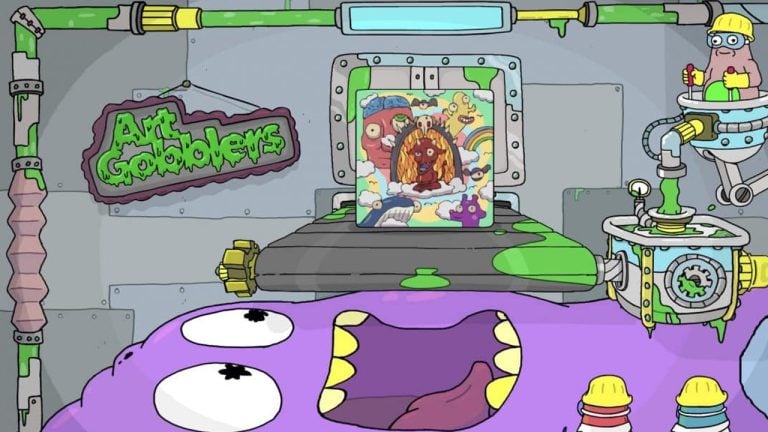 Non-fungible token (NFT) sales increased a great deal during the last seven days as NFT sales jumped 56.73% higher than sales recorded the week prior. Over the last seven days, out of 889,499 NFT transactions, NFT sales volume reached a total of $170.48 million this past week. Art Gobblers and Keepers Collections Give NFT Sales […]
Non-fungible token (NFT) sales increased a great deal during the last seven days as NFT sales jumped 56.73% higher than sales recorded the week prior. Over the last seven days, out of 889,499 NFT transactions, NFT sales volume reached a total of $170.48 million this past week. Art Gobblers and Keepers Collections Give NFT Sales […]